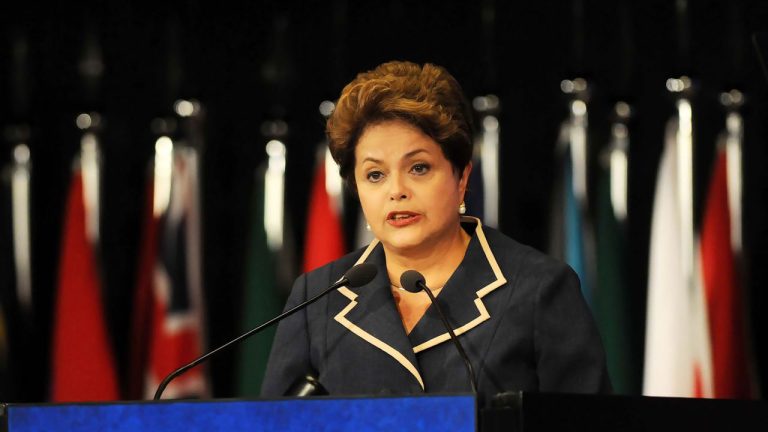BRICS Bank President Dilma Rousseff Calls for the Creation of a Global South Focused Financial System

Dilma Rousseff, president of the New Development Bank — also known as the BRICS bank — and former Brazilian president, has called for establishing a financial architecture designed for the so-called Global South. In a keynote speech at the 14th Lujiazui Forum, Rousseff remarked on the importance of this new structure for promoting sustainable growth.
BRICS Bank President Rousseff Calls for Direct Liquidity to Global South Countries
Dilma Rousseff, president of the New Development Bank (NDB), also called the BRICS bank, has outlined the role she believes the institution must follow. In an opening keynote speech at the 14th Lujiazui Forum held in Shanghai, titled “Global Financial Opening-up and Cooperation: New Drivers of Economic Recovery,” Rousseff talked about the importance of establishing alternative financial structures tailored for the Global South.
Rousseff stated:
It is urgent we create a new architecture to channel the available liquidity to make financing feasible on the scale and under the conditions required by the countries of the Global South.
The concept of the Global South, coined by American Writer Carl Oglesby in 1939, refers to underdeveloped countries outside of the traditional centers of power, including parts of Latam, Africa, Asia, and Oceania.
Furthermore, Rousseff detailed that creating these new financing tools, preferably in local currencies, was “essential” for promoting long-term investments.
This is not the first time Rousseff explained the importance of funding these initiatives with local currencies. During the keynote of the eighth annual meeting of the BRICS bank, Rousseff declared:
We will seek to fund a greater share of our projects in local currencies, with the dual objective of strengthening the member countries’ domestic markets and protecting our borrowers from the risks of currency fluctuations.
Supporting Multilateralism
Rousseff mentioned multilateralism has a “strategic significance,” explaining that projects like the Chinese “Belt and Road” initiative promote a balance in the new multipolar world order now being configured, outlining that the BRICS bank would work for building a more equitable and sustainable world.
In this regard, the bank has already included three countries more that are not part of the BRICS bloc: Bangladesh, Egypt, and UAE. Argentina, currently engaged in a loan agreement with the International Monetary Fund (IMF), has also applied to be part of the BRICS bank and receive financial support.
Honduras is the latest country that has formally applied to be admitted to the bank, presenting its formal application during a recent visit of Honduran President Xiomara Castro to Shanghai.
What do you think about the BRICS bank’s push to construct alternative financial structures directed to the Global South? Tell us in the comments section below.

Comments are closed.